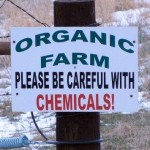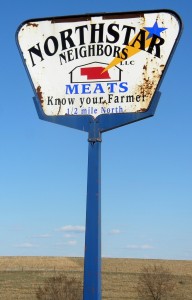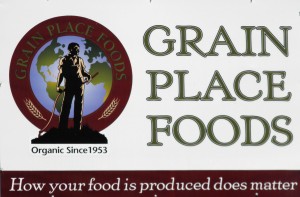Local Foods
Central to our relationship with the land is food production, the primary industry in rural areas. Yet rural diets tend to mirror urban diets. Processed foods, often originating in other countries, provide a convenient source of food year round. Local food production capacity is devoted almost exclusively to the large-scale raising of corn and soybeans, cattle and hogs. And though backyard gardening remains widespread in rural areas, homegrown foods, once a dietary staple, are now only a seasonal treat.
 Consumer tastes, however, are changing. Some consumers question the safety of pesticides used on fruits and vegetables as well as the use of antibiotics and growth hormones to produce meat. Some consumers object to the environmental and humanitarian impact of industrialized food production. Some want to develop a relationship with the people who produce their food. Some simply think locally produced food tastes better.
Consumer tastes, however, are changing. Some consumers question the safety of pesticides used on fruits and vegetables as well as the use of antibiotics and growth hormones to produce meat. Some consumers object to the environmental and humanitarian impact of industrialized food production. Some want to develop a relationship with the people who produce their food. Some simply think locally produced food tastes better.
Whatever the reasons, demand for locally produced foods is increasing. Interest in farmers’ markets and community gardens is growing in both urban and rural settings. This is creating a link between farmers and consumers and providing new opportunities to integrate working the soil with other areas of life.
The Knopiks
 Among area farm families producing food for local consumption are Jim and Carolyn Knopic and their children and grandchildren. The Knopiks, who farm just south of Boone County, raise 400 acres of crops and mob graze 200 cows on 1,000 acres of pasture.
Among area farm families producing food for local consumption are Jim and Carolyn Knopic and their children and grandchildren. The Knopiks, who farm just south of Boone County, raise 400 acres of crops and mob graze 200 cows on 1,000 acres of pasture.
The Knopiks have been instrumental in organizing the local North Star Neighborhood, a direct-marketing cooperative involving several area farmers. Specializing in beef, pork, lamb, turkey, chicken and duck, North Star Neighbors only sells meat from animals raised from birth on their farms. These animals are raised in open lots rather than in confinement and are never given antibiotics, artificial growth stimulants or animal by-products. Their animals are finished on non-genetically modified corn, soybeans, oats and alfalfa, and taken directly to a family-owned, USDA-inspected processing plant.
The Knopiks’ success with North Star Neighbors has led them to start the state-wide Nebraska Food Cooperative. Within this organization, sustainable producers work to develop a distribution system that brings all their products together. The cooperative buys from producers and gathers income from consumers, saving restaurants and grocery stores from having to deal with many different farmers to meet their produce needs.
The Knopiks are active rural advocates and are featured along with other innovative producers from across the nation in the book Farming Together Now: A Portrait of People, Places and Ideas for a New Food Movement by Amy Franceschini and Daniel Tucker.
The Grain Place
 Grain Place Foods, located to the south of Boone County between Marquette and Aurora, is dedicated to providing ‘top-quality certified organic whole grains and seeds that are produced in an ecologically sustainable and socially responsible manner.’
Grain Place Foods, located to the south of Boone County between Marquette and Aurora, is dedicated to providing ‘top-quality certified organic whole grains and seeds that are produced in an ecologically sustainable and socially responsible manner.’
Grain Place Foods is a family business which grew out of Don Vetter’s efforts to find a viable alternative to conventional farming practices. Certified organic in 1978, the Vetter family founded one of the first organic grain storage and cleaning facilities in the northern Great Plains.
Grain Place Foods currently employs two dozen people and works with small organic family farmers from Canada to Texas and even Latin America, selling their products online and through retailers.
In order to support farmers considering growing organic grains, Grain Place Foods’ website offers advice on transitioning to organic farming, including information on crop rotation, maintaining the soil’s fertility and controlling weeds and pests. Their website also features recipes that utilize natural grains.
Grain Place Foods is a successful example of a dream becoming a reality. It has won numerous awards for its pioneering work in alternative agriculture, includingCenter for Rural Affairs Seventh Generation Award, UNL Alumni Entrepreneur of the Year, New Hope Natural Media and Organic Products Expo Award and Northern Plains Sustainable Agriculture Society Steward of the Year.